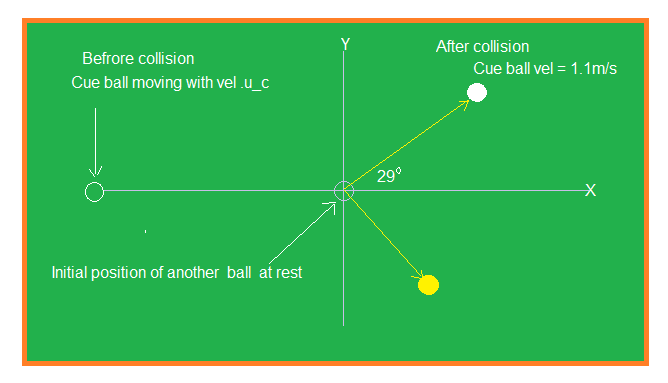In a game of pool, the cue ball strikes another ball of the same mass and initially at rest. After the collision, the cue ball moves at 1.10 m/s along a line making an angle of 29.0° with its original direction of motion, and the second ball has a speed ?
1 Answer
Velocity of 2nd ball after collision
velocity of cue ball before collision
Explanation:

Let
Before collision he Cue ball is moving along the positive direction of X-axis and another ball is at rest lying at origin as shown in adjoining figure.
m->"the mass of each ball" u_c->"Velocity of cue ball before collision" u_a->"Initial velocity of another ball hit by cue ball" v_c->"Velocity of cue ball after collision" v_a->"velocity of another ball after collision" alpha="Angle subtended by" v_c "with its initial direction of motion" beta="Angle subtended by"v_a"with the initial direction of motion of cue ball.."
Given
We are to find out the value of
To solve this problem let us assume that the collision is perfectly elastic and both conservation of KE and Conservation of linear momentum are valid here.
Applying law conservation of KE we can write
Inserting
Now applying law of conservation of momentum
Along X-axis we can write
Inserting
Now applying law of conservation of momentum
along Y-axis we can write. ( there was no component of initial ovelocity along Y-axis)
Now squaring eqation (2) and (3) and adding we get
Now combining equation(1) with this we get
putting given value
Now inserting the value of
we can write
The velocity of cue ball before collision

